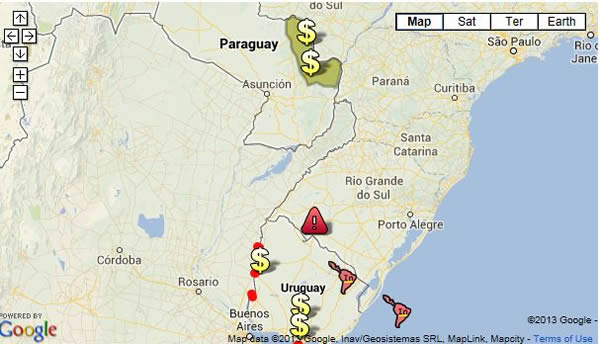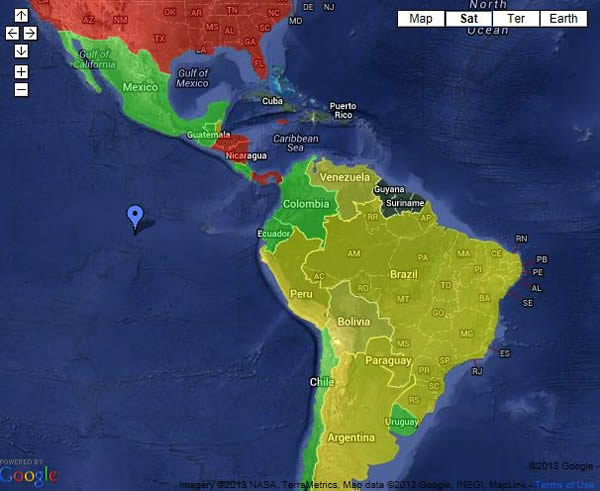After passing a stern test in the lower house of congress, Uruguay's historic marijuana legalization bill will soon become law, but its impact may be more international than national.
The bill passed by a narrow 50-46 margin following a day of speeches and posturing that included the deciding vote being cast by Dario Perez, a public critic of the measure.
"It's shit, with or without the law," he told congress before voting in favor of the measure.

It was a long road. Since it was drafted in 2012, polls showed the marijuana bill -- which has defined three types of producers, creates a regulating body to oversee sales and places limits on production and purchases of the plant -- does not have popular support. The most recent Cifra poll had two thirds against the measure, which was consistent with earlier polls by this and other organizations.
Opponents outside the country included Brazilian President Dilma Rousseff and the Pope, who said during his recent trip to Brazil that: "A reduction in the spread and influence of drug addiction will not be achieved by a liberalization of drug use, as is currently being proposed in various parts of Latin America."
As Geoffrey Ramsey described in the Pan American Post, the measure succeeded despite these polls and powerful international detractors because a broad coalition of organizations, much of them constituents of the ruling Frente Amplio (FA) party, mounted an impressive lobbying campaign.
They called this campaign "Regulacion Responsable," or "Responsible Regulation," emphasizing, according to Ramsey, "the security, health and social benefits of regulating the black market for cannabis."
The campaign was powerful enough to secure the FA vote and gain some traction with opposition lawmakers. Although none of them voted for the law, many of them supported pieces of it, arguing for more gradual change.
The bill now moves to the Senate where it is expected to pass easily, making Uruguay the first nation on the planet to legalize production, sale, and consumption of marijuana.
InSight Crime Analysis
At least initially, the marijuana law in Uruguay may have more impact outside of the country than inside. It will take months to implement the legislation and work out the wrinkles, and years to test the results.
As Ramsey wrote in InSight Crime’s own investigation of the measure, marijuana sales in a controlled, regulated environment face a lot of challenges, the most prominent of which is keeping the price reasonable and attractive for the estimated 120,000 users.

Up to 80 percent of the marijuana consumed in Uruguay now comes from neighboring Paraguay, which provides most of its cheap, regular product via Uruguay’s porous borders with Argentina and Brazil.
Uruguayan supporters of the marijuana bill say they can undercut the price and offer a much higher quality. This remains to be seen. In the meantime, most Uruguayans will continue rely on Paraguayan criminal groups to supply them with marijuana that many say smells like the "urine."
The bill passed the lower house also, in part, because it was framed as a way to slow the rising crime and homicide rate in Uruguay. But as Ramsey wrote in InSight Crime, the legislation is not likely to have a direct impact on Uruguayan criminal groups, who do not seem to be fighting over the marijuana trade in a country that is already one of the safest in the hemisphere.
The legislation will, however, provide a big boost to other political leaders in the region seeking to shepherd their own colleagues towards new laws regarding illicit drugs in an attempt to lower violence and address health concerns in their countries.
Prior to the vote, Organization of American States (OAS) Secretary General Jose Miguel Insulza visited Uruguay late last month in a show of support for the measure. The OAS has been one of the most vocal supporters of reframing the legalization debate towards one that seeks lower levels of violence and less punitive measures against petty criminals and drug users.
In July, a group of 65 Mexican congressmen sent a letter of support to the FA in the lead up to the vote, and Mexico City's city council is considering a measure to decriminalize marijuana use. Numerous ex-presidents from the region have voiced support for a change in the paradigm, including former Brazilian President Fernando Henrique Cardoso who wrote an op-ed that called the Uruguay proposal "addition by subtraction."
“Simply taking this money out of the black market could be a benefit in and of itself,” he said.
But while it will provide the kind of real life experiment that policymakers, academics, health care workers, prison employees, college kids, and hundreds of civil society organizations across the globe will be watching, Uruguay's small size may also make it impossible to extrapolate from the results, be they positive or negative for health and public security.
Perhaps more importantly, Uruguay is too small to swing the pendulum in this political debate. The tendency, for the moment, appears to be keeping the status quo as evidenced by Brazil, Canada and the United States' federal governments firm positions against legalization.
And while those supporting legalization can put one country in the win column, the regional map (see below) remains decidedly against them.
InSight Crime Map: Legalization, Decriminalization in the Americas
